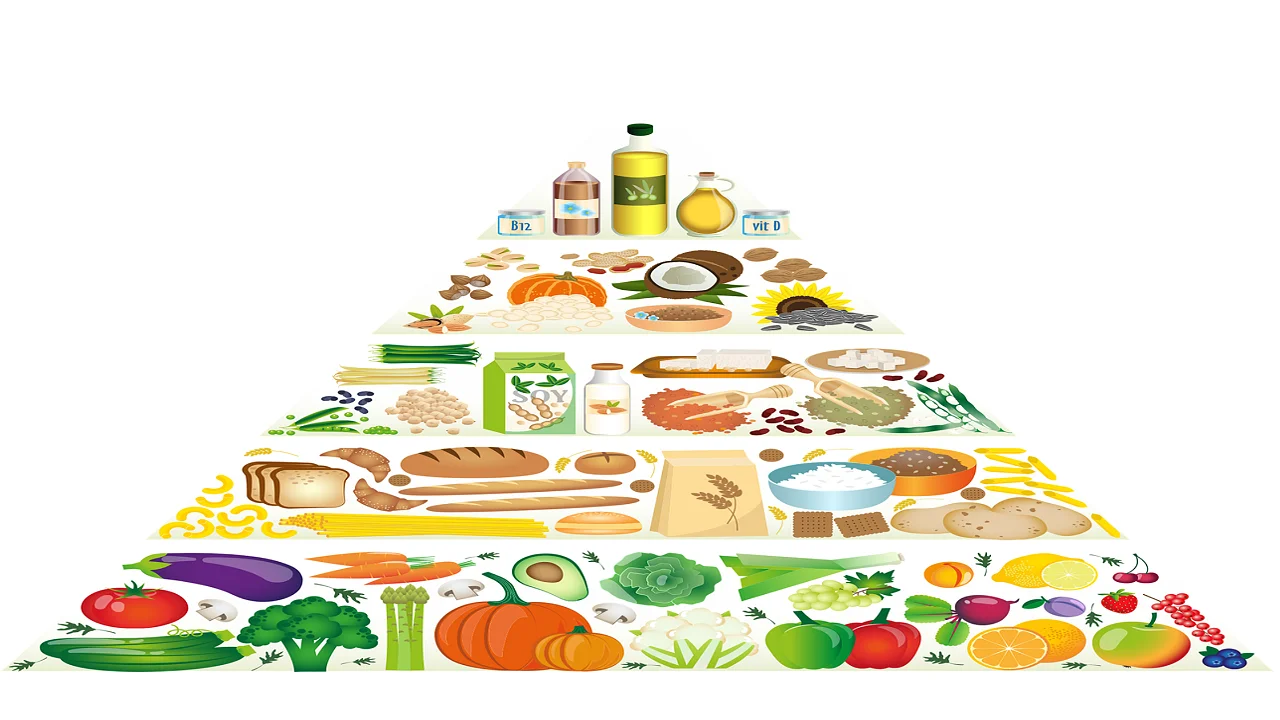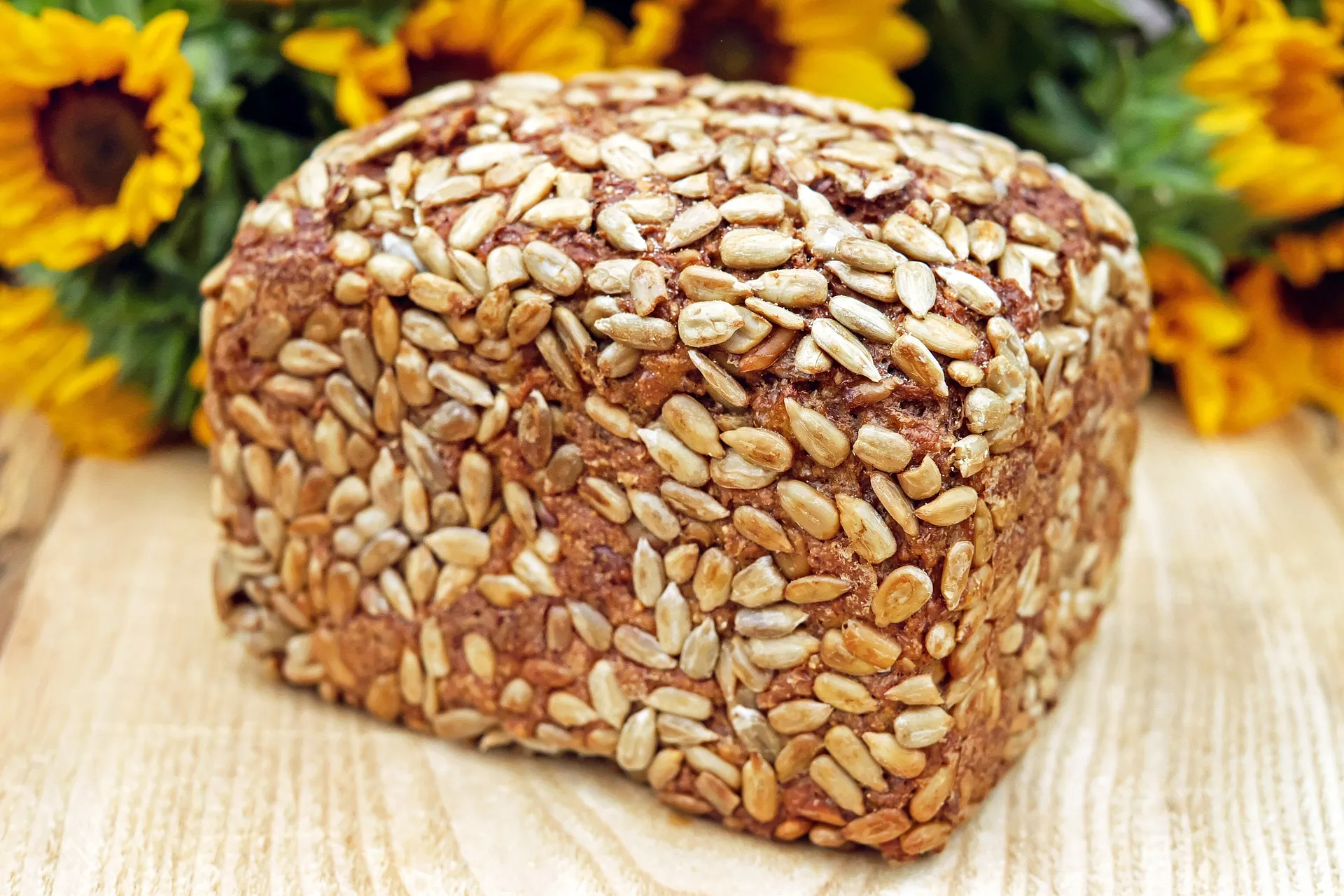
Note: The table below requires mobile phone users to adjust the screen manually for optimal viewing.
It should not surprise anyone that there is no consensus on various food pyramid components. This food pyramid reflects the well-reasoned opinions of the best experts in the field and my personal opinion. A good diet provides the body with all the nutrients required to maintain a healthy body and mind and supports tissue regeneration.
The composition of foods, the source (natural versus processed and industrialized), the preparation method, and even the timing of eating and drinking are highly significant. It is essential to emphasize that easily digestible foods are better absorbed. Natural foods that contain natural oils are often easier to digest.
The food pyramid does not provide a complete picture.
The recommended food pyramid is visualized in different colors, and if you add up the colors, you will get a very clear pyramid. I must emphasize that industrialized and processed food causes enormous health damage. It is now a staple of the modern diet.
Good and very good.
- Products marked as "good" or "very good" are beneficial and have no significant restrictions on their consumption. (Normal consumption)
Limited quantities.
- Products marked as "limited quantities" are only recommended for moderate consumption.
Avoid or minimize quantities.
- Try to minimize the consumption of products marked as "avoid" or "minimal quantities."
Dense and heavy bread is much more satisfying.

Which bread is the healthiest? (Sprouted, rye, spelled, or whole flour sourdough bread.)
- Healthy bread is dense and tends to be massive. (Especially bread made without yeast.)
- Bread with low gluten is best. Most healthy bread has low gluten. (Although not zero percent gluten.)
- There are many bread recipes. Most people do not bake their bread, so buying bread from a reliable source is essential. The best are small, specialized bakeries that deliver organic, whole-grain sourdough bread.
- Sprouted bread is recommended for everyone. Sprouting releases enzymes that break the grain shell, which makes it much easier to digest. Sprouted bread has low gluten and is much easier to digest than regular bread.
- Low-calorie bread is less dense and weighs less. Heavy bread makes you feel full faster.
Minimize eating white flour and yeast bread; it disturbs the gut flora balance.
Quantities, compositions, and scheduling have great significance.
Essential nutritional principles for good health:
- Eat natural, unprocessed foods as much as possible. Preferably non-GMO organic food.
- Easy digestion of food is of great importance. Food that is difficult to digest, especially animal protein, strains the immune system.
- The quantities (mainly of animal proteins) and the composition of the foods are significant. A healthy diet must include all nutrients and generous amounts of natural plant foods.
- Acidic foods for the gut, especially animal proteins and starches, should not be consumed together in large quantities.
- Dietary fiber and probiotic bacteria, such as yogurt, are essential for a healthy immune system.
- Foods that contain natural fat aid digestion and should not be avoided. (in reasonable amounts)
It is essential to pay attention to proper dietary habits.
- Chew well, take a break, and eat comfortably.
- Do not eat late at night.
- Fresh vegetables should be sprinkled with olive oil or other oils such as hemp or flaxseed.
- Add a little fat with a higher melting temperature, such as coconut oil or Ghee butter, boiled or baked starches, or vegetables. (Although they are saturated fats.)
- Especially after a meal that includes animal protein (which is more difficult to digest), a 20-30-minute walk at a moderate speed is recommended. Walking helps the digestive process.
We eat with all our senses, so it's desirable to fill the plate with various vegetables seasoned with oils and spices. (This includes aromatic salt.)
Diverse and high-quality food allows us to avoid unnecessary supplements that may cause harm.

A cow weighs about ten times as much as a nursing woman. The protein in milk is very concentrated and is designed to feed calves and not humans! The excess protein is converted to ammonia (toxic) and synthesized in the liver into substances excreted in the urine. Goat and sheep's milk is much more suitable for consumption, but its price is significantly higher than that of cow's milk products.

